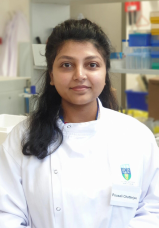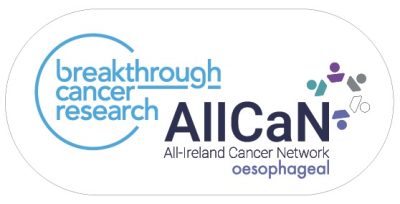The impact of cellular metabolic pathway manipulation on inflammatory-driven Barrett’s Oesophagus (BO)-to-Oesophageal cancer (OAC) transitioning, and the potential role for the HDL proteome as a non-invasive immune-metabolic biomarker of disease progression.
 Pousali Chatterjee
Pousali Chatterjee
Ms. Pousali Chatterjee is the second PhD student appointed by the All-Ireland Cancer Research Network (AllCaN) Programme. Pousali is working under the supervision of Dr. Fiona McGillicuddy and Prof. Helen Roche at UCD to answer the research question; Can we improve the identification of survivors who most need dietary support using personalised biomarkers, and is it visceral adiposity or dietary saturated fatty acids that augment the risk of transition from Barrett’s Oesophagus (BO) to oesophageal cancer (OAC)?
Inflammation plays an important role in driving a transition from a pre-cancerous state (Barrett’s Oesophagus) to a malignant oesophageal cancer (OAC) state. Pousali aims to explore the effects of the fuel sources available to the cells on the subsequent mounting of cellular inflammation and growth rate. The fuel sources available to the cells (sugar or fat) will dictate the type of metabolism the cells undergo (glycolysis = breaking down glucose or fatty acid oxidation = burning of fat). Thus we will control cellular metabolism by regulating the fuels delivered to the cells. This will give greater insights into how dietary composition may contribute to disease transitioning in humans. In parallel, we will measure the proteins attached to ‘good cholesterol’ (HDL) particles as a new biomarker of inflammation in humans at risk of OAC, and the degree to which exercise intervention in high-risk individuals can reduce inflammation.
AllCaN Project Collaborators
Scientific Collaborator: Prof. Stephen Pennington
Clinical Collaborator: Prof. Carel le Roux

Back









 Contact
Contact